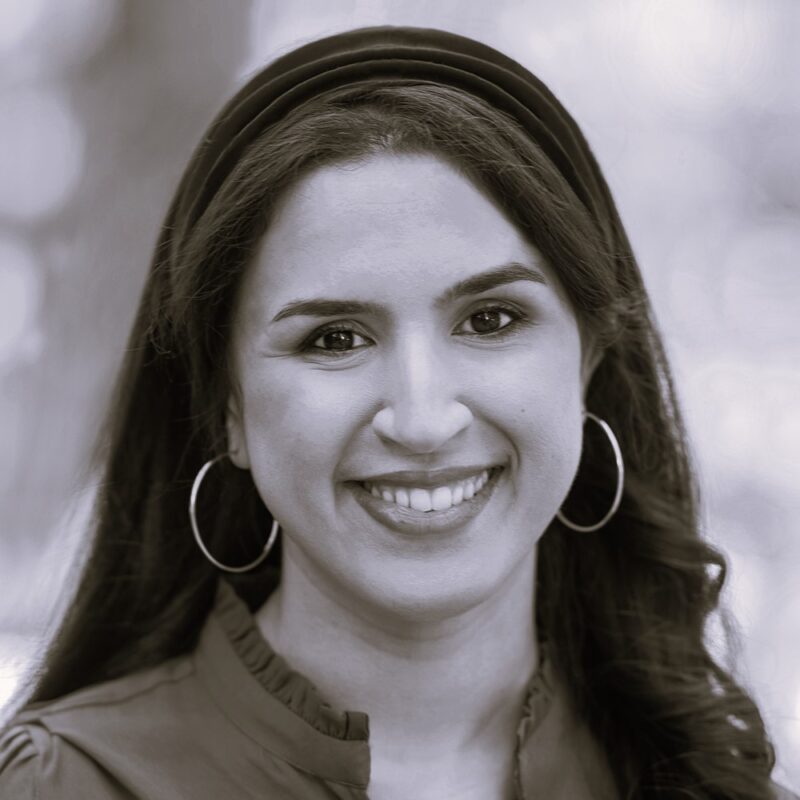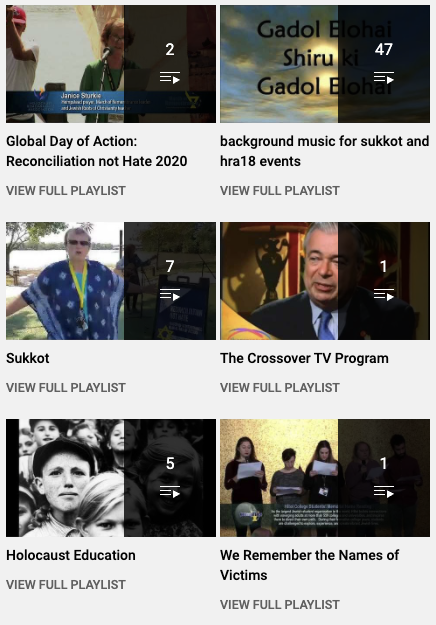“Our pain must show us that there is no war against one part of us that isn’t a war on all of us.”
What words of Torah can reflect our profound sorrow in this moment?
Each of us will forever remember the moment when we first heard about the October 7 massacres. I had just arrived at the community I lead, the Downtown Minyan, my mind filled with plans for that night’s Simhat Torah celebrations. I am shomeret Shabbat, so I was completely surprised when a congregant, frantic with worry, approached me before I had a chance to remove my jacket. He urgently informed me about a devastating attack on Israel. He spoke of Hamas breaching the border, civilian hostages, and reported atrocities.
I was in shock and gripped immediately by a visceral pain for my beloved Jewish people. Unable to reach out to my own relatives in Israel to check on their safety, I nevertheless had a service to lead and a community to hold. I still do. Finding words of Torah for this moment — words of mourning, anguish, and resilience — has been my calling ever since that morning.
A teaching by Rabbi Joseph Soloveitchik (known as the Rav) came to my mind that Shabbat, a piece of Torah that I have returned to every day since October 7. It is about Jewish peoplehood. The pain I felt in that moment was for the Jewish people, and I knew many others would be feeling the same, perhaps for the first time so acutely. I’ve taught this piece many times in the past few years, but as more of an abstract concept, to urge liberal American Jews to understand that Jews are not just a religious group, but a people, a family — and that this comes with special commitments towards one another. The morning of October 7, the Rav’s wisdom took on a new dimension.
In a 1956 sermon, Rabbi Soloveitchik asks whether the dispersion of Jews across the world — and the ensuing diversity of Jewish customs, languages, and ways of life — has caused Jews to cease being one people: “Is the Jewish Diaspora one or not?” Are we still a “we”?
To explore this question, the Rav invokes an obscure Talmudic inquiry (Menachot 37a) in which the rabbis debate the status of a man with two heads. Should he wear one or two pairs of tefillin, receive one share of inheritance, or two? The rabbis’ question is legal, spiritual and ontological: They want to know whether this is a single or a multiple being.
So too, the Rav asks, we should ask about the Jewish people: Are we one or many? He provides a response as profound as it is raw. He suggests that the way to determine whether the man with two heads is a single entity is to pour boiling water on one of the heads. If the other head screams in pain, then the two-headed man is a single being; if not, “then they are two individuals enfolded in one body.” This painful test is the test of peoplehood. The Rav writes, “So long as there is shared suffering, in the sense of ‘I am with him in his distress’ (Psalms 91:15), there is unity.”
This past Simchat Torah, such a test was carried out. The worst form of cruel, murderous boiling water drenched our people in southern Israel, and many of us — thousands of miles away — cried out in visceral pain. The anguish has been overwhelming, as has the rage. It has led many Jews around the world to act in ways we have never acted before, inspired by feelings we have not felt before.
This is what Jewish peoplehood feels like. The pain is telling us that the organism is working, that we are still a “we.”
This pain is the essence of being — or becoming — a Jew. Maimonides tells us, poignantly, that we must ask would-be converts to Judaism whether they know that they are joining a despised and oppressed people. “Don’t you know that in the present era, the Jews are afflicted, crushed, subjugated, strained, and suffering comes upon them?” If they answer that they know this, and that they still want to become a Jew, they are accepted. The beating heart of Jewish existence is accepting the pain of peoplehood and the moral obligations that ensue.
Va-yehi yadav emunah ad bo ha-shemesh: Moses’ hands remained steady — steadfast, committed (emunah) — until the sun set. That day, these Jews who had just escaped their chains were able to triumph against a malevolent enemy. They did so because they were united, because they were one body. Some took up arms in battle. Moses held up his actual arms, and others held up Moses’s arms. Their pain was shared, but each had a unique role to play.
We are called now to find our own role in this battle.
Even as time distances us from the horrors of October 7, and new horrors rise up in our own backyards, we must insist on fighting the “compassion fatigue” that threatens to creep in. We must keep the pain of peoplehood fresh to breed a sense of solidarity with Israel as it fights to defend itself and its borders. Our job is not simply to mourn or worry. Instead, our pain must lead us to act for the sake of our Israeli brothers and sisters suffering under rocket fire and in captivity, grieving the dead and treating the wounded. Our pain must show us that there is no war against one part of us that isn’t a war on all of us. Our pain must lead us to hold up our arms, supporting Jewish lives and security, and to hold up the arms of anyone undertaking this battle.
And we must prepare for knowing that the job of standing with our people in the United States will become more difficult as Israel ensures it is once again feared in the Middle East. As Micah Goodman explained with tremendous clarity in the early days of the war, “[Israelis] want love and we want fear. We want love from the West. We want fear from the Middle East.” For Goodman, one of Israel’s main challenges is that the actions it must undertake to ensure deterrence in a volatile and tribalistic Middle East will cause it to lose support in the West. Especially in America, we Jews have our role to play: to help support Israel’s battle to eradicate Hamas by shoring up support from its most important ally.
We are living in difficult and dark times. I can’t seem to shake off the sense that we have returned to Jewish history, to saying “b’chol dor vador” — from generation to generation — they rise up against us. And I can’t keep from crying out in frustration and horror at this phrase’s taste of truth. We are facing multiple battles in Israel, in America, and around the world. The most important weapon at our disposal, the one we have to nourish and insist upon, is peoplehood — feeling and behaving as one being.
For indeed, Hamas’s war is not a war against Israel or against the “Zionists” denigrated by so many American college students and activists today. It is a war against the Jewish people. It is a war against our history, our memory, our dignity. It is a war against our calendar, the sanctity of Shabbat, the jubilant joy of Simhat Torah. It is a war against innocence; on those who care for our people, who work our fields, who tend our livestock. It is a war against laughing Jewish children and against Jewish parents’ blessings for peace. It is a war against all of us, and we all have our role to play.
This is not the first time such a thing has happened to our people, of course. Nor is it the first time that war in Israel has engendered new feelings of peoplehood. My late teacher, Rabbi Jonathan Sacks, wrote beautifully in A Letter in the Scroll about his feelings, and those of many Diaspora Jews, in the days after the Six-Day War:
It was then [in 1967] that I knew that being Jewish was not something private and personal but something collective and historical. It meant being part of an extended family, many of whose members I did not know, but to whom I nonetheless felt connected by bonds of kinship and responsibility.
This is our task: to understand that the pain we are feeling is what Jewish peoplehood feels like, and then to hold on to this pain tightly and fiercely, even from afar. Our task is to channel this pain into unwavering and committed action, to either join the battle in our own way or to hold up the hands of those who are fighting.
This article was published on November 2, 2023.


